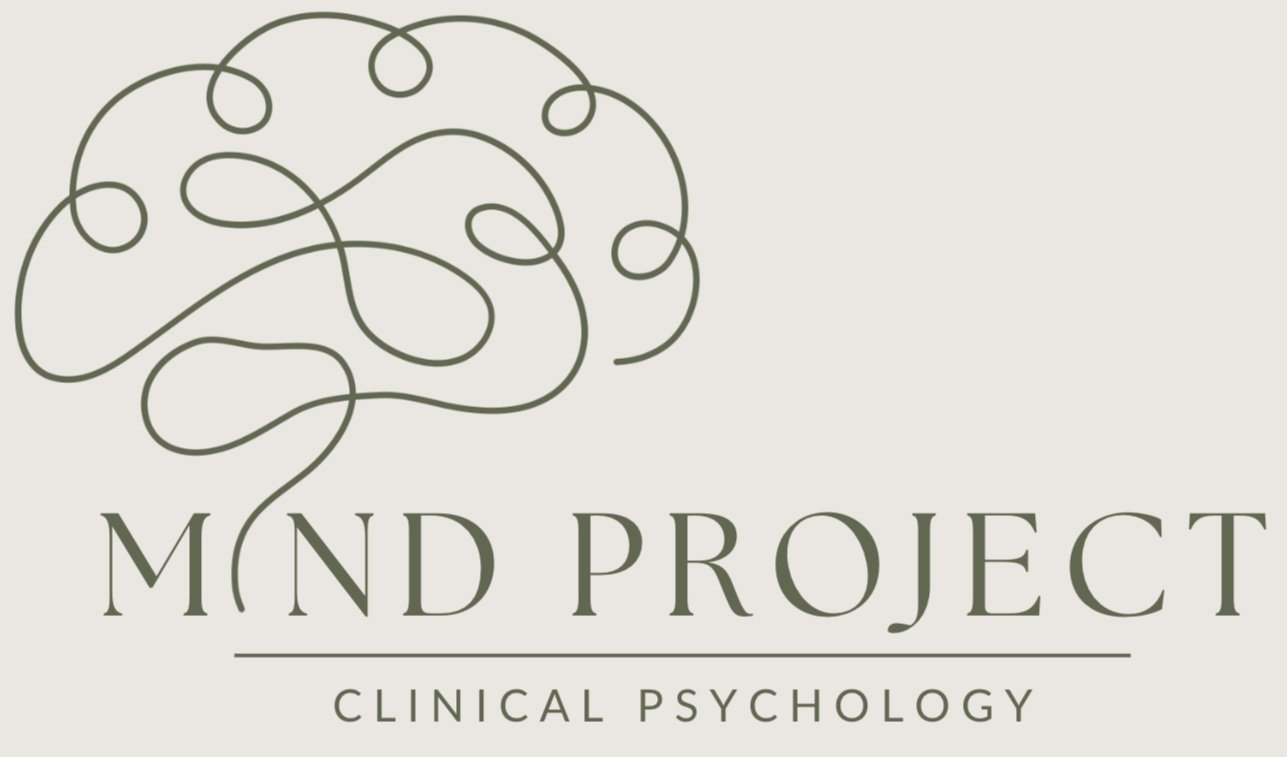
Autism Spectrum Disorder Assessment.
ASD stands for Autism Spectrum Disorder. It is a neurodevelopmental disorder that affects individuals' social communication and behavior. ASD is characterized by a wide range of symptoms and challenges, which is why it is referred to as a "spectrum" disorder. Some common features of ASD include difficulties in social interactions, repetitive behaviors, restricted interests, and communication challenges. The severity of these symptoms can vary significantly from one individual to another, which is why ASD is often described as a spectrum. Early diagnosis and appropriate interventions can greatly improve the quality of life for individuals with ASD.
What is ASD?
We do ASD assessments for
Teens
Children 6+
Adults

Assessment Process
-

1. Clinical Assessment Interview and Administration of ADOS
In the first session, we conduct a comprehensive Clinical Assessment Interview, which typically lasts for 3-4 hours. For assessments involving children, we also include an interview with their caregiver to ensure a holistic understanding. During this session, we will administer either the ADOS-2 or the ADI-R and provide you with a set of online questionnaires, tailored to your specific needs. These online questionnaires will be completed in the comfort of your home, allowing you to take your time. The cost for this session is $570, and it serves as the foundation for the insightful journey ahead.
-

2. Assessment
In our second session, which extends for approximately 1 and a half hours, we dive deeper into the assessment process. The cost for this session is $1180, and it includes the essential report writing and scoring work carried out after the appointment, ensuring you receive a comprehensive evaluation. During this session, we administer the WISC-V For children and the WAIS-IV for adults. This session is a pivotal step in the assessment process.
-

3. Feedback Session
In session 3, you'll spend an hour with our experienced psychologist. This session costs $200. In this session you'll receive your comprehensive Assessment Report, expert feedback, and psychoeducation. This session is highly beneficial as it equips individuals with a deeper understanding of their condition, fostering a sense of empowerment and control over their mental health. It also enables individuals to make informed decisions regarding treatment options and strategies for managing their well-being.
ASD Assessment Fee Overview
Session 2
$1180
Approximately 2.5 hours. Price includes an 8 hour report scoring and write up by clinician
Session 1
$570
Approximately 2 - 4 hours
Session 3
$200
Approximately 1 hour
The Autism Spectrum Disorder Assessment costs $1950 in total. After the first session, we'll let you know if a formal assessment is needed. If not, you'll only be charged for the first session.
How a formal diagnosis of Austism may benefit you.
Improved Relationships: It enhances relationships by helping family members and friends better understand the individual's unique perspective and needs.
Empowerment: Knowing about ASD empowers individuals to embrace their strengths and identity, fostering self-acceptance and self-esteem.
Educational accomodations: An ASD diagnosis can lead to educational accommodations and Individualised Education Plans (IEPs), ensuring they receive appropriate support.
Access to Support: A formal diagnosis often opens doors to a range of support services, therapies, and interventions tailored to the individual's specific needs.
Advocacy: Individuals with an ASD diagnosis can advocate for themselves and participate in autism-related communities, contributing to greater awareness and acceptance.
Future Planning: It assists in long-term planning, including vocational and life-skills development, to help individuals with ASD achieve their goals and lead fulfilling lives.
Validation: It can validate one's experiences and struggles, helping individuals recognise that their unique characteristics and behaviours are not personal shortcomings.
Mental Health: Understanding Autism Spectrum Disorder can reduce anxiety and depression often associated with feeling different or misunderstood.
Understanding: helps individuals and their families understand the nature of their condition, providing clarity about why they may experience certain challenges and strengths.
Self-Awareness: It promotes self-awareness, allowing individuals to develop strategies to manage sensory sensitivities, social interactions, and communication challenges.
SOCIAL CHALLENGES
Common Signs of ASD
Difficulty with understanding or interpreting social cues, such as facial expressions and body language.
Challenges in developing and maintaining friendships.
Limited or atypical use of eye contact during interactions.
Difficulty with understanding and responding to others' emotions.
REPETITIVE BEHAVIOURS
Insistence on sameness & routines, becoming distressed with changes.
Engaging in repetitive movements or activities, such as hand-flapping or rocking
Strong attachment to specific objects or topics of interest.
Unusual sensory sensitivities, such as hypersensitivity to light or sound.
COMMUNICATION DIFFICULTIES
Delayed speech or language development.
Limited use of gestures, like pointing or waving.
Difficulty initiating or sustaining conversations.
Unusual or repetitive use of language, such as echolalia
EMOTION REGULATION CHALLENGES
Heightened levels of anxiety or stress in response to changes or sensory stimuli.
Unusual responses to pain or discomfort.
Difficulty with managing emotions and expressing them appropriately
NARROW INTERESTS
Intense focus on specific topics or subjects to the exclusion of others.
Expertise or deep knowledge in specific areas of interest.
Difficulty shifting attention away from preferred interests.
Diagnostic tools used for our ASD Assessments
— ABAS
TThe ABAS, or Adaptive Behavior Assessment System, is a comprehensive tool used to assess and measure adaptive behavior in individuals of various age groups. Adaptive behaviours are the everyday skills and abilities needed for independent functioning and social participation. The ABAS evaluates an individual's adaptive skills across various domains, such as communication, daily living skills, socialisation, and motor skills.
— ADOS-2
The ADOS-2, or Autism Diagnostic Observation Schedule, Second Edition, is a standardised assessment tool used to aid in diagnosing ASD. It involves structured activities and interactions designed to elicit specific social communication and behavioural responses associated with ASD. Observations and interactions during the assessment are systematically scored and analyzed to determine whether an individual meets the criteria for an ASD diagnosis. The ADOS-2 is considered a gold-standard tool for diagnosing ASD, ensuring reliability and accuracy in assessment, which is vital for appropriate intervention and support planning.
— RCAD (for Children)
The RCAD, or Revised Children's Anxiety and Depression Scale, is a widely used self-report assessment tool designed to measure symptoms of anxiety and depression. It is commonly utilised by mental health professionals to assess emotional well-being in young individuals. The RCAD questionnaire consists of items that inquire about a child's thoughts, feelings, and behaviours related to anxiety and depression, providing valuable insights into their emotional state and helping in the identification of potential mental health issues.
— ADIR
The ADIR, or Autism Diagnostic Interview-Revised, is a structured interview tool used by professionals to aid in diagnosing Autism Spectrum Disorder (ASD). Administered to parents or caregivers, it gathers detailed information about an individual's developmental history, communication skills, social interactions, and behaviours. The interview's responses are then analysed to help determine whether the individual meets the criteria for an ASD diagnosis. The ADIR is a gold-standard tool for diagnosing ASD, offering a standardised approach to gather crucial developmental information, and ensuring a reliable and accurate diagnosis, which is vital for appropriate intervention and support planning.
— SPM-2
The SPM, or Spatial Processing Memory, is a subtest within the WAIS assessment designed to measure an individual's spatial processing and visuospatial working memory abilities. It involves viewing a model of block arrangements and then reproducing the same pattern using blank blocks. The SPM assesses an individual's capacity to process and manipulate spatial information within their working memory. This subtest is often used to evaluate visual-spatial processing and memory skills as part of a broader cognitive assessment, offering valuable insights into an individual's cognitive strengths and weaknesses.
— WAIS (for Adults)
The WAIS, or Wechsler Adult Intelligence Scale, is a widely used standardised intelligence test designed to assess cognitive abilities and intellectual functioning in adults. It is intended for individuals aged 16 to 90 years and older. The primary purpose of the WAIS is to measure a person's general cognitive abilities, which include problem-solving, logical reasoning, memory, and other higher-level thinking skills. The WAIS assesses a wide range of cognitive abilities through various subtests, including verbal comprehension, perceptual reasoning, working memory, and processing speed. It provides an overall measure of an individual's intellectual abilities known as the Full-Scale IQ (Intelligence Quotient). The results of the WAIS are used to understand an individual's cognitive strengths and weaknesses, diagnose learning disabilities, assess intellectual giftedness, and guide educational and intervention planning.
— AAA
The Adult Asperger Assessment is a clinical evaluation process designed to assess and diagnose Autism Spectrum Disorder (ASD) in adults, including those who may have had Asperger's Syndrome, which was a subtype of ASD in earlier diagnostic criteria. This assessment typically involves interviews and standardized assessments conducted by trained professionals, such as psychologists or psychiatrists, to gather information about the individual's developmental history, social interactions, communication patterns, and behaviors. The goal is to provide a formal diagnosis of ASD in adults, allowing for appropriate support, intervention, and better understanding of their unique strengths and challenges in social and communication domains.
— WISC (For Children)
The WISC stands for the Wechsler Intelligence Scale. It is a widely used standardised intelligence test designed to assess the cognitive abilities and intellectual functioning of children and adolescents aged 6 to 16 years. The WISC provides a comprehensive evaluation of an individual's cognitive strengths and weaknesses across various domains, including verbal comprehension, perceptual reasoning, working memory, and processing speed. The primary goal of the WISC is to measure a child's intellectual abilities, such as problem-solving, logical reasoning, and abstract thinking. It is commonly used in clinical, educational, and research settings to assist in diagnosing learning disabilities, identifying giftedness, and guiding educational and intervention planning.
— CAT-Q (for Adults)
The Camouflaging Autistic Traits Questionnaire (CAT-Q) is a self-report assessment tool designed to measure the extent to which individuals with autism spectrum conditions engage in camouflaging or masking behaviors to hide their autistic traits during social interactions. Developed as part of research into the experiences of autistic individuals, the CAT-Q consists of a series of questions aimed at capturing the strategies and efforts individuals use to conform to social norms and expectations, often at the expense of their own comfort and well-being. The questionnaire helps researchers and clinicians gain insights into the phenomenon of camouflaging and its potential impact on the mental and emotional well-being of autistic individuals.
— DASS-21 (for Adults)
The DASS-21, or Depression Anxiety Stress Scales - 21 Item version, is a self-report assessment tool designed to measure the severity of symptoms related to depression, anxiety, and stress in individuals. The DASS-21 consists of 21 items that inquire about various emotional and psychological symptoms, and respondents rate the frequency and severity of these symptoms over the past week. It provides valuable insights into an individual's emotional well-being and is used as part of mental health assessments to assess and monitor symptoms of depression, anxiety, and stress. The DASS-21 is widely used to evaluate emotional distress and assist in treatment planning for individuals with mood and anxiety disorders.













